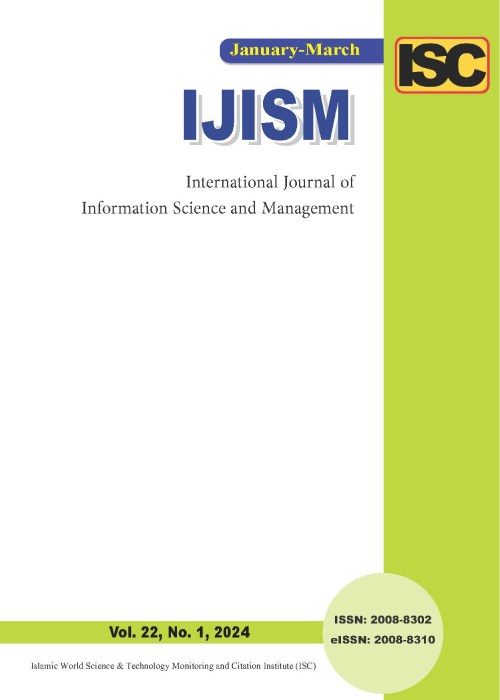Internet Self-Efficacy and the Use of Electronic Information Services Acceptance
Author(s):
Abstract:
Self-efficacy and the use of electronic information services acceptance among the university students can affect the learners' online services. This is the due to the learners' acceptance of using technology and its role in their life. Therefore, the complexity of online and offline services needs to be examined by the experts to assess the learners'' satisfaction which helps them to achieve electronic services. Learners' self-efficacy management can be evaluated as an important issue in the present study. The present study aims at investigating the survey of the relationship between the internet self-efficacy and using the electronic information services among the university students of Dezful Islamic Azad University, Khuzestan, Iran. The present study was conducted through descriptive-analytical method and took a correlational approach. The study sample included 387 students. Smart Partial Least Squares (PLS) was applied to investigate the study conceptual model. The results indicated that the use of the internet among the university students significantly affected the electronic services application (β =0.182). The same significant effects were also found in the variables including web specific self-efficacy on the acceptability of use (β=0.285), perceived control on electronic services application (β=0.142), perceived control on the acceptability of use (β=0.139), interpersonal norms on the acceptability of use (β=0.376), attitudes on the acceptability of use (β=0.169),perceived usefulness on attitudes(β=0.224), perceived amusement on the attitudes(β=0.335), perceived risk on the attitude (β=0.187), and internet self-efficacy on the web-specific self-efficacy(β=0.672). However, it was also made clear that the effects of web-specific self-efficacy on the electronic services application (β=0.033), social norms on the acceptability of use (β=0.061), internet self-efficacy on attitudes (β=0.079) and social norms on attitudes (β=0.026) are not statistically significant. The universities can prepare and compile appropriate training programs to take effective steps in the acceptability of the internet use that is in line with making students more informed and aware of the electronic services.
Keywords:
Language:
English
Published:
International Journal of Information Science and Management, Volume:17 Issue: 2, Jul-Dec 2019
Pages:
55 to 70
magiran.com/p2012728
دانلود و مطالعه متن این مقاله با یکی از روشهای زیر امکان پذیر است:
اشتراک شخصی
با عضویت و پرداخت آنلاین حق اشتراک یکساله به مبلغ 1,390,000ريال میتوانید 70 عنوان مطلب دانلود کنید!
اشتراک سازمانی
به کتابخانه دانشگاه یا محل کار خود پیشنهاد کنید تا اشتراک سازمانی این پایگاه را برای دسترسی نامحدود همه کاربران به متن مطالب تهیه نمایند!
توجه!
- حق عضویت دریافتی صرف حمایت از نشریات عضو و نگهداری، تکمیل و توسعه مگیران میشود.
- پرداخت حق اشتراک و دانلود مقالات اجازه بازنشر آن در سایر رسانههای چاپی و دیجیتال را به کاربر نمیدهد.
In order to view content subscription is required
Personal subscription
Subscribe magiran.com for 70 € euros via PayPal and download 70 articles during a year.
Organization subscription
Please contact us to subscribe your university or library for unlimited access!



